- News
- Reviews
- Bikes
- Accessories
- Accessories - misc
- Computer mounts
- Bags
- Bar ends
- Bike bags & cases
- Bottle cages
- Bottles
- Cameras
- Car racks
- Child seats
- Computers
- Glasses
- GPS units
- Helmets
- Lights - front
- Lights - rear
- Lights - sets
- Locks
- Mirrors
- Mudguards
- Racks
- Pumps & CO2 inflators
- Puncture kits
- Reflectives
- Smart watches
- Stands and racks
- Trailers
- Clothing
- Components
- Bar tape & grips
- Bottom brackets
- Brake & gear cables
- Brake & STI levers
- Brake pads & spares
- Brakes
- Cassettes & freewheels
- Chains
- Chainsets & chainrings
- Derailleurs - front
- Derailleurs - rear
- Forks
- Gear levers & shifters
- Groupsets
- Handlebars & extensions
- Headsets
- Hubs
- Inner tubes
- Pedals
- Quick releases & skewers
- Saddles
- Seatposts
- Stems
- Wheels
- Tyres
- Health, fitness and nutrition
- Tools and workshop
- Miscellaneous
- Tubeless valves
- Buyers Guides
- Features
- Forum
- Recommends
- Podcast
review
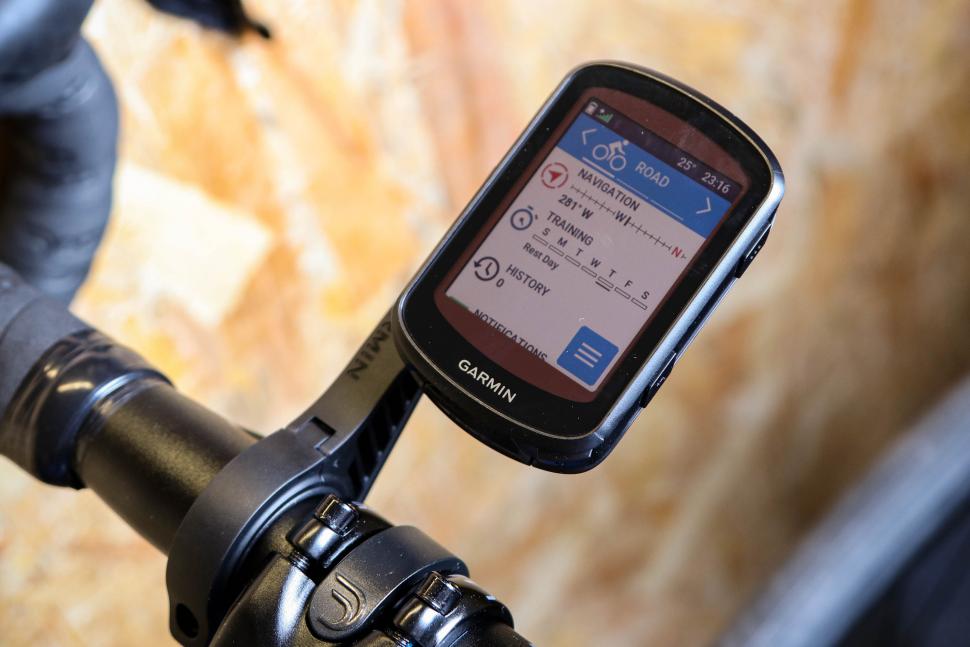 2023 Garmin Edge 840 Solar - on bike 1.jpg
2023 Garmin Edge 840 Solar - on bike 1.jpg£519.99
VERDICT:
A very impressive all-singing, all-dancing device offering navigation, data recording and full training partner
Solar panels boost battery life
Responsive touchscreen
Loads of data on offer
Secure mount
Nav doesn't work off full postcode
Takes you a while to learn the layout
Weight:
89g
Contact:
At road.cc every product is thoroughly tested for as long as it takes to get a proper insight into how well it works. Our reviewers are experienced cyclists that we trust to be objective. While we strive to ensure that opinions expressed are backed up by facts, reviews are by their nature an informed opinion, not a definitive verdict. We don't intentionally try to break anything (except locks) but we do try to look for weak points in any design. The overall score is not just an average of the other scores: it reflects both a product's function and value – with value determined by how a product compares with items of similar spec, quality, and price.
What the road.cc scores meanGood scores are more common than bad, because fortunately good products are more common than bad.
- Exceptional
- Excellent
- Very Good
- Good
- Quite good
- Average
- Not so good
- Poor
- Bad
- Appalling
Garmin has updated its mid-range computers, and the Garmin Edge 840 Solar is one of the new products resulting from that revamp – with its solar charging increasing its battery life by an impressive amount. It's also user-friendly, has excellent resistance to the elements and it's capable of doing way more things than I need it for. Yes, the purchase price represents a big chunk of cash, but if you ride a lot and want the maximum amount of info possible the investment may well be worth it for you.
Check out our best cycling computers buyer's guide, which covers our favourite products from just £50.
Getting Started
Garmin released its range-topping Edge 1040 last year – and earlier this year was the turn of the units sitting below that, with the 530 and 830 becoming the 540 and 840. Garmin has also added solar charging to the mix, and its the 840 Solar that we're reviewing here.
Tom reviewed the 540 Solar in July and his feelings about it were mixed. He found a lot of things that impressed him, but also quite a few that he found a bit frustrating – my feelings on the 840 Solar are more uniformly positive.
One of the reasons could be that I'm a long-term Garmin user. I've used GPS computers from Bryton, Mio and Wahoo over the years, but it's Garmin that I'm most familiar with in terms of where to find things, setting up data pages and the like.
I currently own an Edge 530 and various Fenix watches and I've had the Garmin Connect app for years, and whenever I add a new device to my account I find the integration is simple and seamless.
But even if you are starting from scratch, it's not that difficult. I found this out recently when I set up accounts for my teenager and wife to facilitate their Garmin watches, which was all done without any glitches.
One thing for sure: you can get a lot of data from Garmin's Edge computers, and working your way through them can be a steep learning curve as you try to remember where everything is. But depending on how much data you want to use and collect you'll soon find your way around things.
One of the most obvious benefits of the 840 over the 540 is that it has a touchscreen – and a responsive one at that. This makes it much easier to navigate backwards and forwards through menus. It does also have buttons, for power and stop/start, which does take a little while to get used to, but if you are using it regularly these soon become second nature.
I'd say the best thing to do is to spend some time getting familiar with the unit before you head out for a ride. That way you'll find things a lot less frustrating in the long run.
Battery life
Garmin gives various battery life figures for the 840 depending on whether you're using Bluetooth, Wi-Fi and sensors attached using ANT+.
With the basic GPS on and just recording your ride data you should be able to achieve a claimed 48 hours, whereas with the kind of load I was using – Multi-GNSS Multi-band GPS, data recording every second, two or three sensors connected – heart rate and power – and connecting to my phone via Bluetooth, I still managed to string the battery out for over 26 hours, which pretty much matches what Garmin claims for mid-level usage.
Add the Solar claims to that and you are looking at 78 hours for the minimal drain and 34 hours for the mid-level.
The solar panels sit around the outside of the screen, and they will only charge the battery when the unit is powered on or in sleep mode. Sadly, you can't just leave it switched off on the window sill to top up between rides!
During summer heatwaves I could achieve a battery boost of just under 30% when riding under a clear sky in conditions about as perfect as you could get. This isn't bad considering just how little area the solar cells take up.
We don't actually have weather like that much here in the UK, so I'd say you're likely to get around 15-20% for most of the year. That obviously drops as autumn blends into winter when you'll be gaining quite minor benefits from the solar panels.
The Solar version is £70 more expensive than the standard 840 and unless you regularly tackle long-distance rides, or are going to be away from a charging point for a long time, I personally don't see the point in paying the premium – though you may think differently.
When it comes to charging the old-fashioned way, Garmin has moved to USB-C for the 840, a welcome improvement over the earlier version's micro-USB
Plug it into a wall socket and it will fully charge from flat in around four to five hours.
Navigation, mapping and connectivity
The 840 comes loaded with a full-colour, routable basemap, which considering the 2.6in (66mm) screen size and 246 x 322 pixel resolution is very easy to read, and routes are easy to follow with on-screen prompts helping out regardless of what data screen you are on.
Re-routing and calculations are carried out quickly too.
You can add maps if you're venturing away from the UK and mainland Europe thanks to the device's 32GB storage capacity.
You can also create your own courses to follow and store up to 100 on the device itself along with 200 waypoints, favourite places or locations.
In terms of navigation on the fly you can search addresses and points of interest, and to facilitate this the GPS connection is not only quick to latch on and stable in use, it's also extremely precise.
The only minor quibble is that you can't add a destination by way of a full postcode, which you can on your phone or on most car satnavs.
For example, if I was heading to the road.cc office and searched BA1 1JB the 840 Solar will say 'not found'. I'd have to put in BA1 1 and hit search, then I'd have to add the street name and then the number. It's not a major issue, but it feels a bit more of a faff than it needs to be.
As with everything else on the Edge, you can tweak the navigation settings to the Nth degree in its various menus.
Part of the navigation whether gives you access to ClimbPro, a neat feature that gives you details and data of upcoming ascents. Originally, it would only work with pre-loaded routes, allowing you to see which climbs were on your route ahead of time, and when you're riding it would tell you how far it is to the next climb, showing the climb data for when you reach the base.
It doesn't just work on the road either – it gives you data for gravel routes, byways and so on.
ClimbPro now comes with a Free-Ride mode so it switches to the ClimbPro page when riding without following a route, should you want it to.
Other neat features are Garmin's Livetrack and Incident Detection – Livetrack lets you share location with people you specify while Incident Detection sends a text message with your location to your stored contact or contacts should things go a little pear shaped. I found it worked well, and while it did send out a few false alerts, you do have around 15 seconds to cancel the alarm before the text is sent.
You can also keep in touch with the rest of the world when you're riding, as the 840 will show any messages received from your phone.
If you have an Android phone connected to the Garmin you can also respond to phone calls with a text.
Thanks to a full suite of Bluetooth, ANT+ and Wi-Fi your Edge 840 will connect with pretty much every sensor going, from heart rate monitors, power meters to speed and cadence sensors, and many many more. They don't necessarily need to be Garmin devices either.
You can connect electronic groupsets too, which will allow you to see your battery level and what gear you're in.
Training & Analysis
If you are following a training plan or want to start one, then you won't be surprised to hear that the 840 has access to a plethora of options.
After each ride you can get a breakdown of all of your stats and data, including things like training status, VO2 Max and pretty much everything else you can think of. All of this data is uploaded to Garmin Connect once you save the ride, which allows you to look over things when you have finished.
It also helps you build up a picture as you spend more time riding on how you are responding and feeling. I found a lot of this data very useful when returning to riding after a bout of pneumonia earlier in the year. With all of the data I had built up from Garmin's devices over the years I could easily detect peaks and troughs in my performance and wellbeing, which allowed me to back off when necessary.
Training plans and workouts can be used, and they adapt to recent metrics uploaded from previous rides or those being constantly uploaded from wearing a Garmin smartwatch.
If you have a power meter you can tailor your training using Power Glide, which gives you the ability to ride to certain output targets and will also give you predicted times to finish the route you have uploaded depending on your average power.
It's an ideal way to pace a route or race.
You can also program in nutrition and hydration alerts to make sure you don't want to run out of fuel, and you can also see a break down of your stamina on a ride.
Value
The standard Edge 840 has an RRP of £449.99 while this Solar version costs £529.99.
In the box you'll find the unit itself, a secure-fitting, bulky but sturdy out-front mount, standard stem/bar mount, USB charge cable and manual.
By comparison the 540 Solar costs £449.99 with the standard non-solar model £349.99, but I would definitely go for the 840 over the 540 purely for the touchscreen interaction.
Early this year I reviewed the Bryton Rider S800E, its flagship model that costs £339.99. You aren't getting solar charging, but you do get a much bigger 3.4in colour touch screen, which is closer to the Garmin 1030.
There is no Wi-Fi, but that's hardly a deal breaker, but you do get Bluetooth and ANT+ giving you full compatibility with sensors and your smartphone. Its 36-hour claimed battery is similar to what Garmin claims you'll get from its non-solar 840.
The Hammerhead Karoo 2 scored highly when reviewed by Anna a few years back, thanks to its large 3.2in screen and easy functionality. There are no solar charging cells, but it is much cheaper than the standard 840 at £359.99.
The Hammerhead doesn't have all the 840's training capabilities, so it really boils down to just what you want from your bike commuter.
Conclusion
I think the value and desirability of the Edge 840 Solar comes down to exactly what you're looking for from your computer. If you just want mapping and ride data, then it's probably a bit overkill, and you can spend a lot less either on Garmin's lower-end but still highly effective devices or those from other brands.
It's the same with Garmin's Solar option too. Put simply, most of us really don't need it and I personally don't think it's worth the extra £70 unless you're on a remote adventure, when charging your unit the usual way may not be possible.
If you want a computer that can be a training companion, data recorder and a bridge between your bike and your smart phone then the Edge 840 can't really be faulted. But if you don't need the extended battery life plump for the standard version.
Verdict
A very impressive all-singing, all-dancing device offering navigation, data recording and full training partner
road.cc test report
Make and model: Garmin Edge 840 Solar
Size tested: n/a
Tell us what the product is for and who it's aimed at. What do the manufacturers say about it? How does that compare to your own feelings about it?
Garmin says: "Improve every day with Edge® 840 Solar, the touchscreen and button-controlled cycling computer with event adaptive training1. It's the optimal gear to prepare you for upcoming races or personal milestones."
It's a very capable device offering everything and more that a cyclist needs.
Tell us some more about the technical aspects of the product?
General
DIMENSION 57.8 x 85.1 x 19.6 mm (2.3in x 3.4in x 0.8in)
WEIGHT 88.9g
WATER RATING IPX7
TOUCHSCREEN
DISPLAY SIZE 2.6in (66 mm) diagonal
DISPLAY RESOLUTION 246 x 322 pixels
COLOUR DISPLAY
BATTERY TYPE Rechargeable lithium-ion
BATTERY LIFE Up to 32 hours
BATTERY SAVE MODE
POWER GLASS SOLAR CHARGING
IN-RIDE POWER COMPATIBLE (POWER MOUNT AND GARMIN CHARGE BATTERY PACK)
Maps & memory
ABILITY TO ADD MAPS
BASEMAP Preloaded Garmin cycle map
STORAGE AND POWER CAPACITY 32 GB
WAYPOINTS/FAVOURITES/LOCATIONS 200
NAVIGATION ROUTES 100 Courses
HISTORY Up to 200 hours
Sensors
GPS
GLONASS
GALILEO
BAROMETRIC ALTIMETER
GYROSCOPE
ACCELEROMETER
AMBIENT LIGHT SENSOR
MULTI-BAND GNSS
MAGNETOMETER
Daily smart features
CONNECTIVITY Bluetooth®, ANT+®, Wi-Fi®
CONNECT IQ™ (DOWNLOADABLE WATCH FACES, DATA FIELDS, WIDGETS AND APPS)
ON-DEVICE CONNECT IQ™ STORE
SMART NOTIFICATIONS
TEXT RESPONSE/REJECT PHONE CALL WITH TEXT (ANDROID™ ONLY)
WEATHER FORECASTS
REALTIME SETTINGS SYNC WITH GARMIN CONNECT™ MOBILE
CONTROLS SMARTPHONE MUSIC
VIRB® CAMERA REMOTE
SMART TRAINER CONTROL
SMARTPHONE COMPATIBILITY iPhone®, Android™
Safety and tracking features
ASSISTANCE
LIVETRACK
GROUPTRACK
GROUP RIDE (CYCLING)
RIDER-TO-RIDER MESSAGING
INCIDENT DETECTION Yes (includes off-road)
FIND MY EDGE®
BIKE ALARM
WEATHER ALERTS
INREACH® COMPATIBLE
Activity tracking features
CALORIES BURNED
INTENSITY MINUTES
Training, planning and analysis features
CUSTOMISABLE SCREEN(S)
DOWNLOADABLE TRAINING PLANS
DAILY WORKOUT SUGGESTIONS Yes (event specific)
PRIMARY AND SECONDARY WORKOUT TARGETS
AUTO PAUSE®
INTERVAL TRAINING
ADVANCED WORKOUTS
AUTO LAP®
VO2 MAX
TRAINING STATUS - CYCLING
TRAINING LOAD - CYCLING
TRAINING LOAD FOCUS - CYCLING
REAL-TIME STAMINA - CYCLING
CYCLING ABILITY ANALYSIS
COURSE DEMANDS ANALYSIS
TRAINING EFFECT
RECOVERY ADVISOR
VIRTUAL PARTNER
RACE AN ACTIVITY
SEGMENTS
AUTO SCROLL
PHYSIO TRUEUP
UNIFIED TRAINING STATUS
Outdoor recreation
CLIMBPRO ASCENT PLANNER - CYCLING
CLIMBPRO - COURSES
CLIMBPRO - FREE RIDING
Cycling features
COURSES
ALERTS (TRIGGERS ALARM WHEN YOU REACH GOALS INCLUDING TIME, DISTANCE, HEART RATE OR CALORIES)
GARMIN CYCLE MAP (ROUTABLE CYCLING-SPECIFIC STREET MAP) Yes (multi-region)
MTB DYNAMICS
COMPATIBLE WITH VARIA™ RADAR (REAR-FACING RADAR)
COMPATIBLE WITH VARIA RADAR CAMERA
COMPATIBLE WITH VARIA™ LIGHTS
POWER METER COMPATIBLE
ON-DEVICE COURSE CREATOR
ON-DEVICE LOCATION SEARCH
POWER GUIDE
TRENDLINE POPULARITY ROUTING - CYCLING
POPULARITY HEATMAP
CYCLING DYNAMICS COMPATIBLE
INTEGRATED TRAILFORKS TRAIL DATA
EBIKE SMART RANGE ROUTING
Connectivity
EDGE® REMOTE
VARIA™ REMOTE
ANT+™ ELECTRONIC SHIFTING
SHIMANO DI2 SYNCHRO SHIFT INTEGRATION
EXTENDED DISPLAY (ALLOWS A GARMIN WATCH TO SHARE DATA SCREENS ON EDGE®)
Rate the product for quality of construction:
8/10
Rate the product for performance:
9/10
Rate the product for durability:
8/10
A tough and durable unit, and thanks to an IPX7 rating it is highly resilient to poor weather.
Rate the product for weight (if applicable)
8/10
Rate the product for value:
5/10
Tell us how the product performed overall when used for its designed purpose
It has everything covered in terms of training, navigation and data recording.
Tell us what you particularly liked about the product
The touchscreen makes it easy to navigate through the options.
Tell us what you particularly disliked about the product
You can't search by postcode alone.
How does the price compare to that of similar products in the market, including ones recently tested on road.cc?
No other brand offers solar charging so comparing the standard Edge 840 to the competition shows that the price is still higher than those offered by Bryton or Hammerhead. However, the Garmin offers much more in terms of options and data should you require it, which balances things out.
Did you enjoy using the product? Yes
Would you consider buying the product? Yes
Would you recommend the product to a friend? Yes
Use this box to explain your overall score
This is a very impressive unit that literally has more options and capability than most of us need, but it delivers all of that in an easy to use package. The solar option does add to the price, but you can easily go for the cheaper standard option if you don't require the boost to battery life.
About the tester
Age: 44
I usually ride: This month's test bike My best bike is: B'Twin Ultra CF draped in the latest bling test components
I've been riding for: Over 20 years I ride: Every day I would class myself as: Expert
I regularly do the following types of riding: time trialling, commuting, club rides, sportives, fixed/singlespeed,
Since writing his first bike review for road.cc back in early 2009 senior product reviewer Stu has tested more than a thousand pieces of kit, and hundreds of bikes.
With an HND in mechanical engineering and previous roles as a CNC programmer/machinist, draughtsman and development engineer (working in new product design) Stu understands what it takes to bring a product to market. A mix of that knowledge combined with his love of road and gravel cycling puts him in the ideal position to put the latest kit through its paces.
He first made the switch to road cycling in 1999, primarily for fitness, but it didn’t take long for his competitive side to take over which led to around ten years as a time triallist and some pretty decent results. These days though riding is more about escapism, keeping the weight off and just enjoying the fact that he gets to ride the latest technology as part of his day job.
Latest Comments
- lesterama 10 min 18 sec ago
Plenty of cheaper bikes in the 70s and 80s had stem gear levers as an alternative to down-tube levers. I think it was to maximise damage in the...
- chrisonabike 13 min 38 sec ago
That sounds a good summary. Of course, they may find "simple interventions" don't do what they think. And if "nobody messes around with their...
- chrisonabike 22 min 18 sec ago
All good - but as usual a vote for a complete change of mindset. "Vision zero" can be a good, well defined program but I think a lot of the time...
- Condor Andy 34 min 5 sec ago
Nice team too. 11th overall! I didn't pick Narvaez...
- chrisonabike 58 min 17 sec ago
No, "for balance" they'll have the Association of Bad Drivers on / some other "I'm in favour of cycling, but..." folks!...
- mdavidford 1 hour 12 min ago
That only covers total rainfall, though. My (quite possibly erroneous) understanding, is that, while the trajectory is for more in total, it's also...
- Steve K 1 hour 50 min ago
For anyone in the Sheffield area https://bsky.app/profile/ppushbike.bsky.social/post/3lgnamkc4t226
- Daveyraveygravey 2 hours 29 min ago
I ride quite a bit in Italy too, and the drivers are every bit as dangerous as in the UK. Close passing is terrible....
- mdavidford 3 hours 3 min ago
That's probably the point - they don't want you to have the standard colour scheme - they want you to pay for a custom one.
- Sriracha 3 hours 7 min ago
There's no way this design is lighter than a conventional design of equivalent strength.











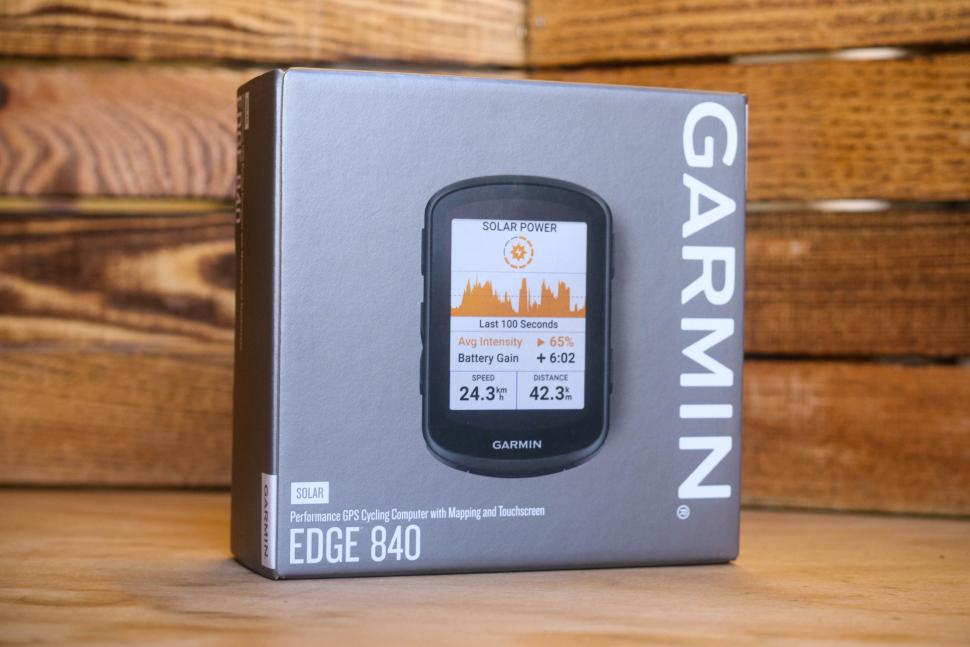
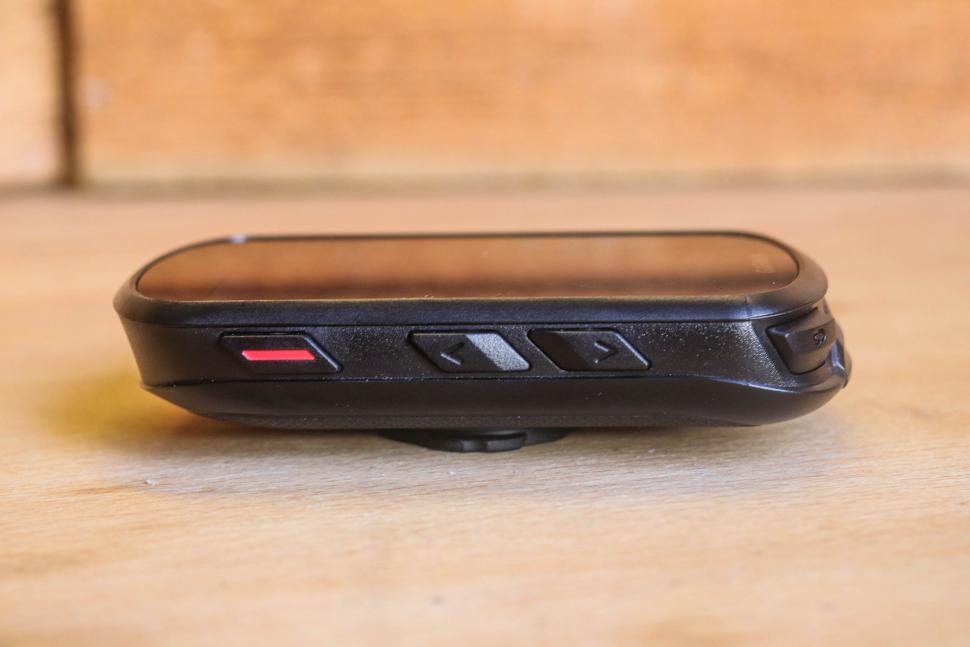
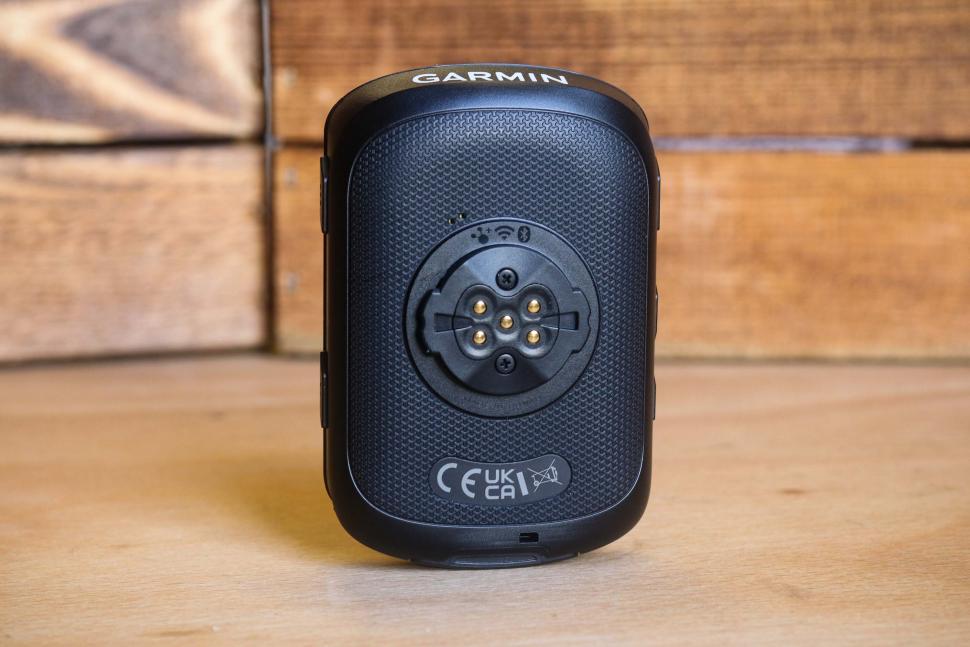
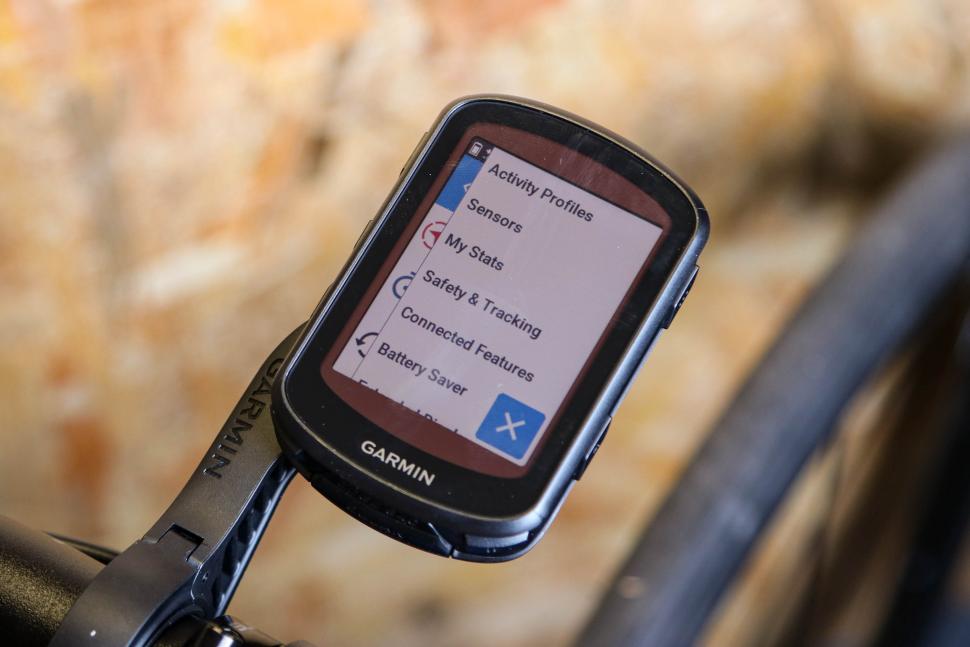
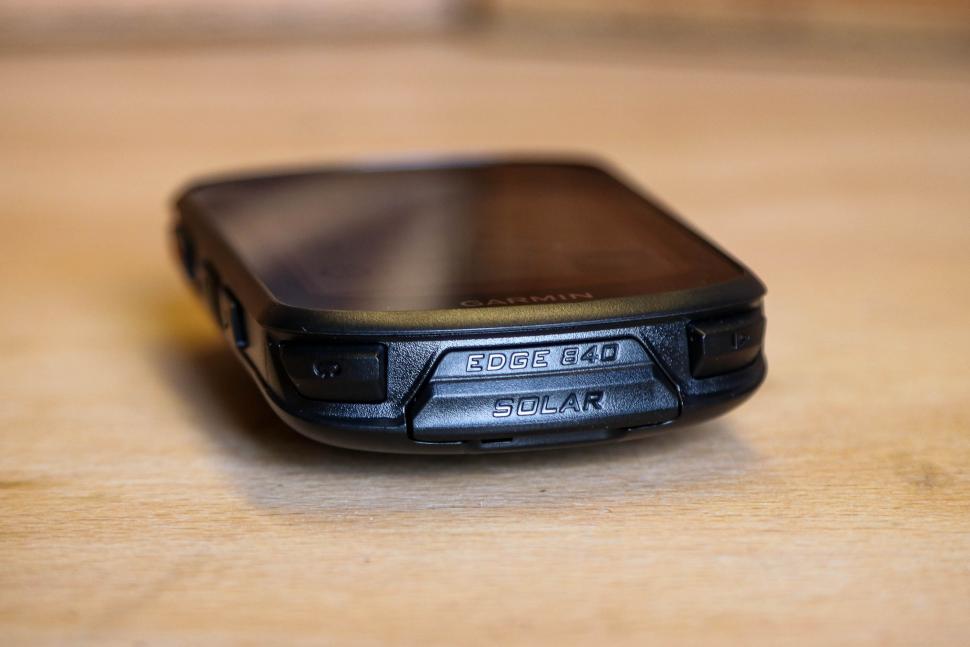
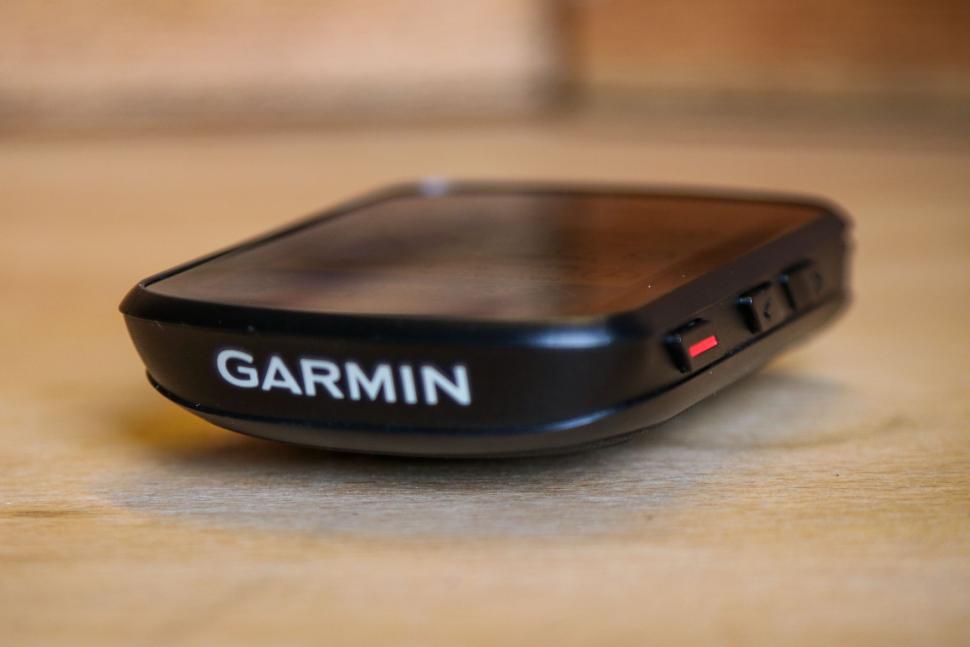
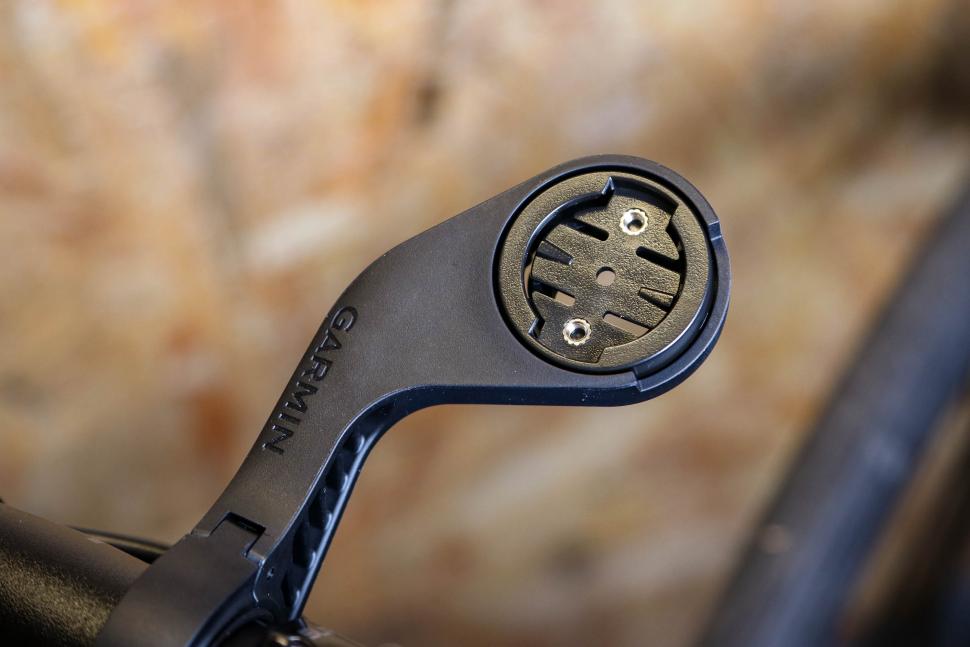
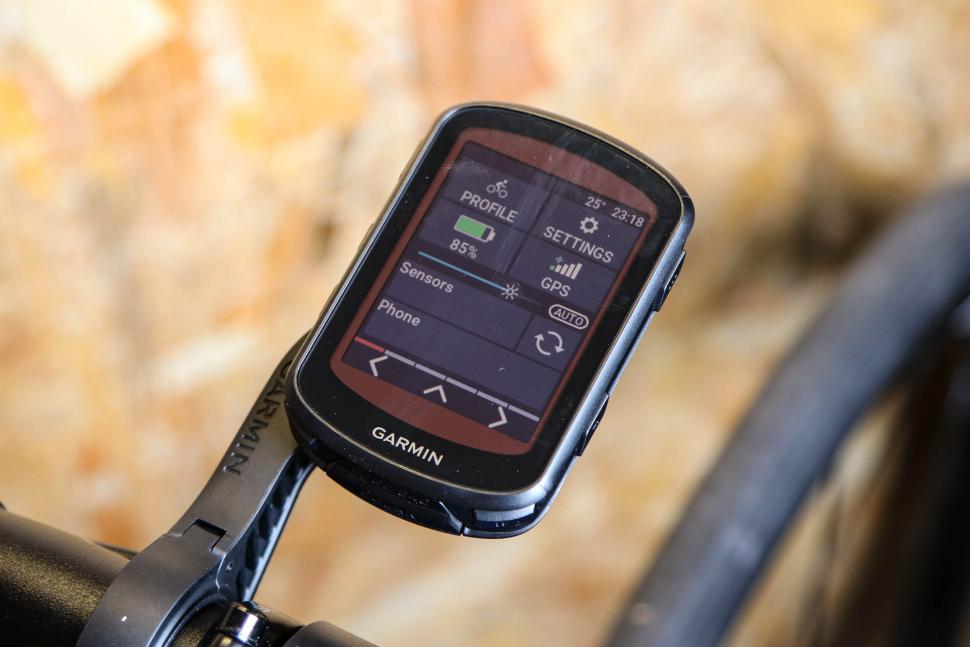
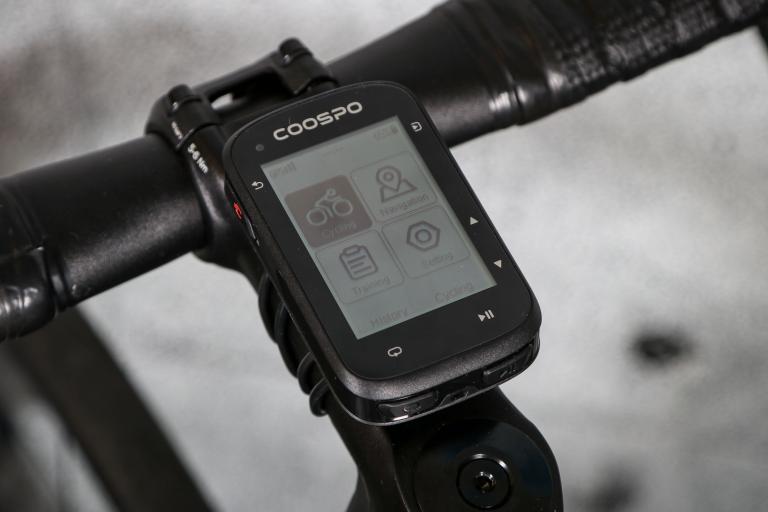
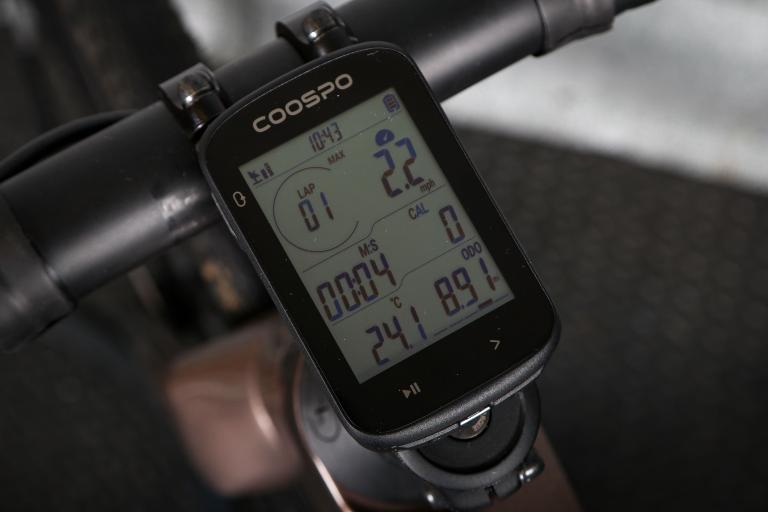
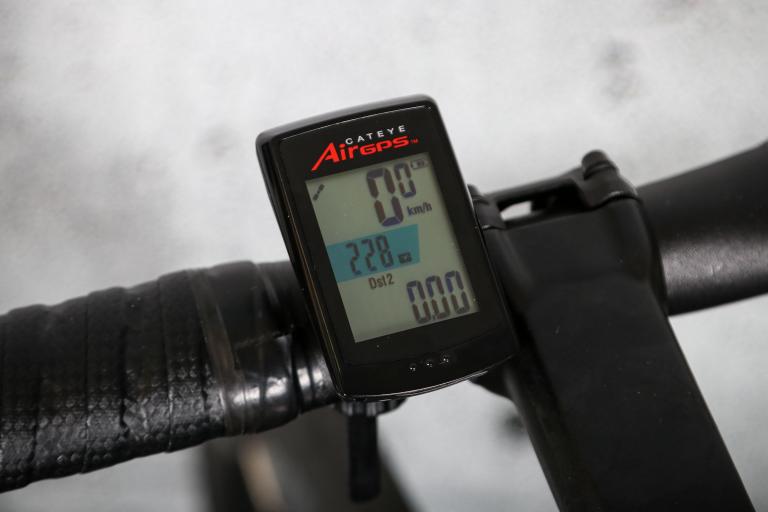
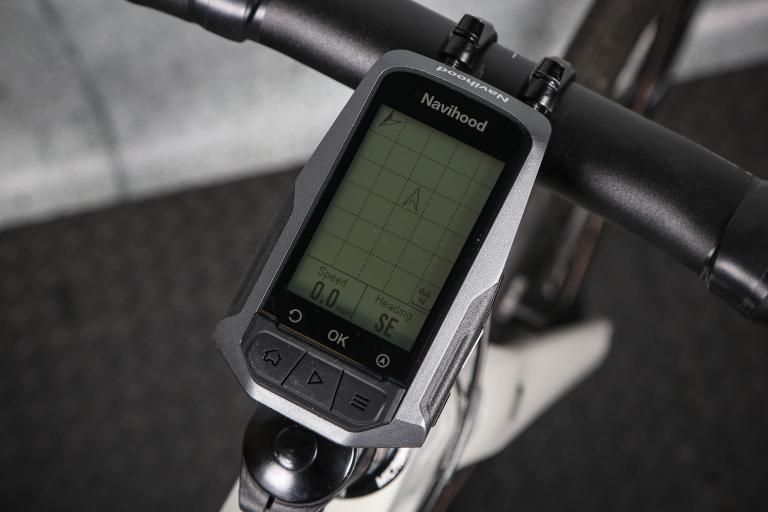
Add new comment
1 comments
The reviewer says 'you can send texts'. Are these still the silly predefined ones from Garmin with no option to define your own from either the unit or Connect?